It is possible to cut spending in practically every area of a business. However, there is a fine line between reducing operating costs to the point that it becomes inefficient and costly and ensuring a company is well resourced to deliver maximum profits.
By Debbie Kirlew
Investment in systems can streamline processes, enabling employees to work smarter and faster, thereby increasing productivity. However, quantifying these can be difficult, so many dealers include a healthy dose of gut feeling when it comes to assessing their impact. Subjecting costs to regular scrutiny, though, is an absolute must for effective cost management.
Perrys Motor Group has used a procurement company, Purchase Direct, since chairman Ken Savage led the company’s management buy-out in 2001.
“It’s a continual process, which requires constant re-visiting because costs are always changing. We appoint one supplier for gas or electricity today, but in 12 months’ time their package may not be the most competitive,” he said.

Perrys chairman
Ken Savage
Savage scrutinises the costs himself, looking at the detail, where savings and improved cost management are usually identified: “It requires management and direction from the top to make a difference. We go through every line of cost and you have to apply that level of discipline for it to be worthwhile.”
Part of the process includes measures to ensure suppliers are utilised group-wide to net the best savings. Appointing the same energy suppliers for its 40 dealerships is relatively straightforward, but difficulties often arise in areas such as stationery. General managers are sometimes tempted to use a local supplier and this ‘leakage’ receives particular attention from Savage.
He also compares mobile phone usage among his staff so discrepancies are easily spotted, such as high data roaming charges abroad or an unusually high number of calls.
“Often a quick call from me is all that’s needed,” said Savage. “It is usually enough for everyone to know that we are watching and we will act.”
How Perrys Motor Group saved £170,000 on energy bills
Perrys monitors energy consumption and tariffs closely and in 2014, it saved almost £170,000 on gas and electricity expenditure compared with previous years, equating to a reduction of almost 3,700 kWh of energy consumption and a saving of 1 million tonnes of carbon. Savage has commissioned Purchase Direct to undertake an analysis of its valeting contracts, worth £2m, to determine best value for money and potential savings.
“For us, it’s an on-going process; simply looking at areas as a one-off initiative which saves ‘X’ is missing the point,” said Savage. “It is about controlling and managing costs on a daily basis and monitoring contracts to ensure they are honouring your agreement.”
“Dealerships have a massive turnover and the difference between success and failure is marginal, which makes cost management critical”Ken Savage, Perrys
All purchase requests are approved by Savage, although he also points out that cost management includes making the right investment. He cites the example of PCs and laptops, saying it is rare for him to refuse new equipment purchases because many employees spend the majority of their working day in front of a screen so newer, faster models can improve efficiency and productivity.
“Dealerships have a massive turnover and the difference between success and failure is marginal, which makes cost management critical,” he said.
An energy reduction programme at TrustFord, which operates from 65 locations and employs more than 3,000 people, resulted in an 18% drop in energy consumption in 2014 compared with 2013 and savings of more than £200,000 on a seven-figure energy bill. TrustFord partnered with Purchase Direct to implement the energy-saving scheme as well as secure the most cost-efficient energy contracts.
Tim Bundy, TrustFord’s business development director, said: “We set strategic goals with a view to achieving substantial returns, but it was also about being a good corporate citizen.”
Although the cost savings were considerable, Bundy is quick to cite the 1,600-tonne reduction in CO2 emissions being of equal, if not more, merit. Smart meters and gas loggers were installed across the group, which deliver the data required to monitor consumption and identify potential savings.
“Understanding how the systems are controlled, who has access and their settings can lead to a significant reduction in energy usage and costs”Tim Bundy, Trust Ford
Building improvements were made, including enhanced insulation and modern ventilation equipment and the installation of low-energy lighting in showrooms and back offices. With each employee now accountable for their energy usage, Trust Ford appointed ‘environmental champions’ across the group, responsible for energy consumption at their site.
Bundy said: “The project’s success depends on a vigorous implementation across the whole organisation. If it was going to be a worthwhile process, then we had to engage with people across all our sites with a personal interest and enthusiasm in environmental matters.”

Tim Bundy,
TrustFord
business
development
director
The environmental champions received training and tools to enable them to monitor energy consumption and change behaviour at grass roots level. Daily reports pinpoint discrepancies and unusually high usage, enabling culprits to be tackled, such as a compressor left on in the workshop or air conditioning not switched off at night. Inevitably, some locations are more diligent than others.
Undertaking the initial audit and installing the smart meter and gas logger required an investment of £1,200 per site or about £72,000 across the main operational sites, while ongoing annual costs for data collection, reporting and energy management support are about £900 per site or £54,000 across the group. The investment delivered a saving of more than £200,000 in the first year, despite not all sites being on the programme for the full year. Following the initial large gains, continual cost and energy savings will become increasingly difficult, although Bundy is adamant the focus will not diminish.
One innovative project involves recycling waste oil to provide heating at four of Trust Ford’s largest workshops. Based on a recent example, the cost of a waste oil heating system was 37.5% higher than a conventional gas heating system (£22,000 vs £16,000) and a £6,000 upgrade to the waste oil storage tank was required, but with projected fuel cost savings of £3,000 a year, the investment will be recouped after four years.
The group’s scale makes significant savings possible, but Bundy’s advice to smaller groups is to assess energy usage and understand control settings: “You will probably find things like no one knows how to control the heating system in the workshop so it’s left on constantly and when technicians become too hot, they just open all the doors. Just understanding how the systems are controlled, who has access and their settings can lead to a significant reduction in energy usage and costs.”
Spending less on digital marketing can boost returns
When it comes to saving costs, marketing is an easy target. However, in a digital world where the internet is key, investment in web activity is more likely.
SMC Group operates nine businesses across the South East representing Ford, Suzuki and Mitsubishi and had concentrated pay-per-click (PPC) spend on tactical offers, but an analysis from digital partners GForces showed these to be the most expensive, largely because bidding from manufacturers and dealers made related ad words competitive and costly.
Sonia Hobbs, SMC marketing director, said: “GForces recommended revising the account structure to give a stronger brand presence as this was where we had traditionally seen a lower CPL (cost per lead) and a higher conversion rate.”
The group reduced its PPC spend by more than a third (35.6%) ,yet benefited from an increase in clicks of almost two thirds (63.86%) and a corresponding fall in CPC (cost per click) of 65.16%. In February 2014, SMC were paying 90p on average for each lead or click from its PPC campaigns, but by February this year, it was just 31p. PPC leads rose by 270% equating to 825 in February 2015, compared with 223 in February last year. Meanwhile, conversion rates increased by 125.78%.
“It was quite phenomenal that something so simple could not only mean we were spending less money, but delivered more leads,” said Hobbs.
“In the past, we had just followed the pack and were bidding on the same or similar tactical terms when all we needed to do was focus on our own businesses and because there is less competition for those ad words, our costs came tumbling down.”
Snows Group also worked with GForces to control costs and deliver increased results. Over the course of a year, the website and reports were scrutinised, technical updates were implemented and fresh content provided while SEO was dovetailed with manufacturer campaigns. Marketing and messages became consistent and assets were used across all platforms. During the updates, from June 2013 to March 2014, SEO changes alone delivered an increase in website visits of almost a third (32%), while cost per lead dropped 45% to 88p and the conversion rate increased by 54%.
Snows Group marketing manager Kimberly Cole said: “The results demonstrate not only a dramatic effect on the total number of visits to our website, but, more importantly, shows that the quality we were looking for has been achieved whilst the amount of money we were spending on SEO fell.”
Integrating IT systems can save money and time
Investment in technology can reap benefits in terms of time and cost savings. The Ridgeway Group, which represents 12 brands across 38 sites, opted for a fully integrated showroom management system three years ago in an attempt to improve efficiency. The system incorporates tools for lead management and integrates with IT solutions in place across other areas of the group.
Richard Jenkins, head of group finance & insurance, said: “The Dealerweb system replaced a series of disparate systems from different suppliers, and consolidated the sales process into one fully integrated, joined-up management platform. Installing an effective showroom management system has helped save an enormous amount of time and effort for all staff.”
Cooper BMW in Croydon uses CustomerVue’s workshop platform, which tracks individual vehicles through the workshop and records two-way customer communications via email or text. While efficiencies and savings are difficult to measure, head of aftersales Paul Jacobs said removing it would mean reverting to a more labour-intensive process.
“We have to input and update, but it works like an internal live chat system as well as logging additional customer contacts, providing us with an audit trail should any queries arise at a later date. We also use it in our bodyshop. We are piloting the system with our technicians so they can input information and we are considering rolling it out to our valeters so we gain practically real-time information on any one car in the workshop. The biggest saving it offers us is time; the benefits most definitely outweigh the cost.”
How are car manufacturers helping to drive efficiencies?
 As the retail division of Ford Motor Group, TrustFord worked closely with its manufacturer parent to identify and install low-energy lighting in line with brand guidelines and corporate standards.
As the retail division of Ford Motor Group, TrustFord worked closely with its manufacturer parent to identify and install low-energy lighting in line with brand guidelines and corporate standards.
Tim Bundy, TrustFord’s business development director, said: “Ford was extremely happy to participate in the project and immediately saw the benefits. It is now something which has been deployed to the wider Ford network.”
Toyota embarked on a scheme in 2010 to help its network become more energy-efficient as part of its corporate social responsibility policy, which would also lead to cost savings for its retailers. An initial network usage survey set a benchmark, new energy monitoring equipment was installed to provide effective reporting and consultancy support assisted in spreading energy management best practice. Five years later, the average Toyota and Lexus Centre uses 21% less electricity and gas, equating to an annual reduction of just less than 6,000 tonnes of CO2 and a network saving of about £1,000,000 over the past 12 months.
Alan Jennings, Toyota’s manager for corporate planning and corporate social responsibility, said: “The energy management programme has exceeded the targets set five years ago, both in terms of reduction in the carbon
footprint of our network and in financial savings. The results demonstrate how continual focus on making small improvements help deliver significant results.”
Manufacturers have long been asking dealer groups not to bid against them for ad words, arguing that the only winner is Google.
SMC’s marketing director, Sonia Hobbs, said: “We were literally throwing money down the drain paying premium prices for the same ad words the manufacturers were paying for anyway, and those which many dealers in the same network were also bidding on. Now we let the manufacturers spend the money promoting the tactical campaigns online and we spend ours very differently highlighting the business itself.”

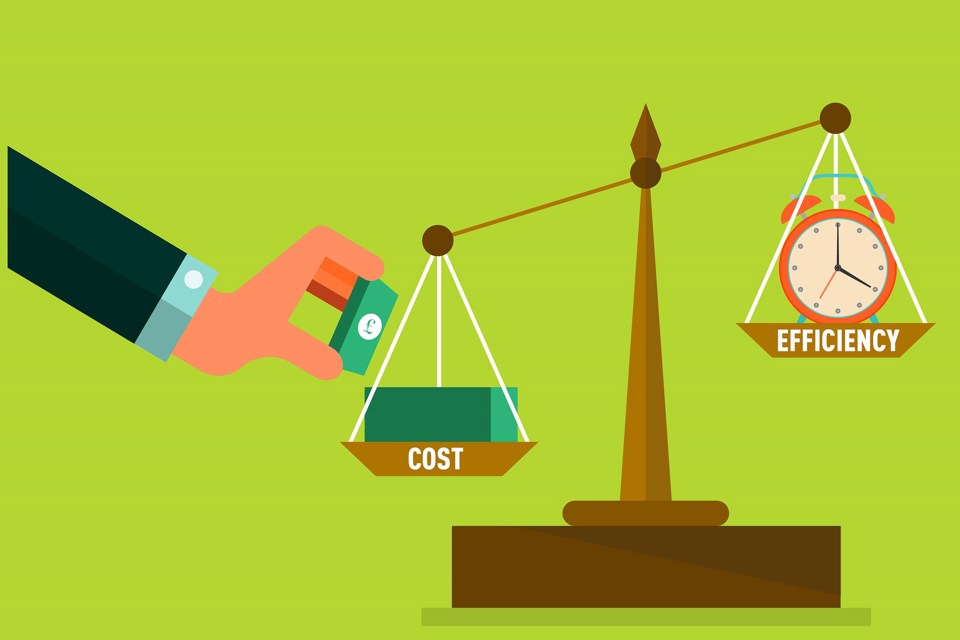
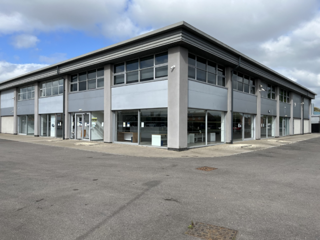
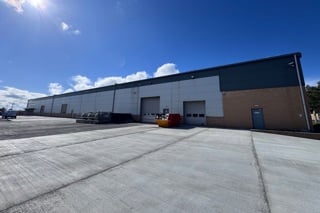

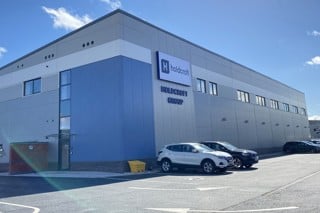
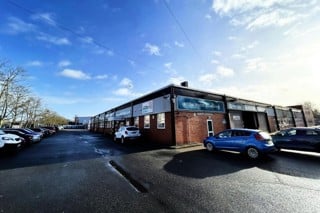












Login to comment
Comments
No comments have been made yet.